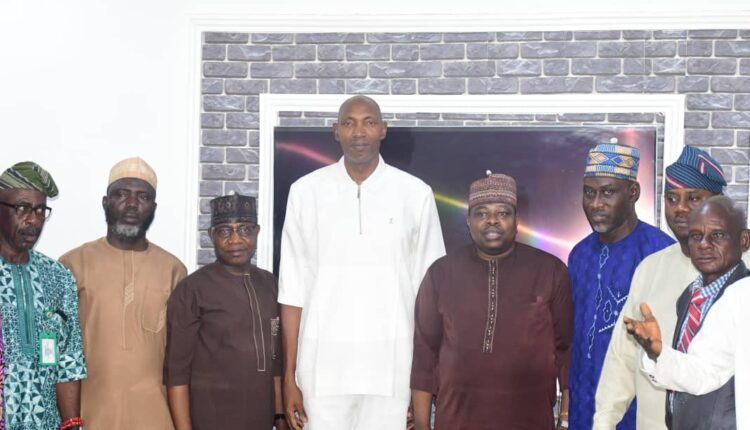Ododo Moves to Clean Up Land Administration as Kogi Begins Major GIS Reform
The Kogi State Government has launched a sweeping reform of its land administration system, initiating a full upgrade of the Kogi Geographic Information System (KOGIS) to tackle years of illegal allocations, haphazard development, and bureaucratic bottlenecks.
Director-General of the Kogi State Bureau of Lands, TPL Kehinde Salihu-Otaru, announced the move during a working visit by the Special Adviser on Media to the Governor, Ismaila Isah, and the LugardTV team. He described the overhaul as a decisive step by Governor Ahmed Usman Ododo to restore order, transparency, and investor confidence in the state’s land management processes.
According to Salihu-Otaru, although KOGIS was introduced in 2020, the system suffered significant setbacks—including inaccurate mapping, overlapping land allocations, encroachments, inconsistent records, and long delays in issuing Certificates of Occupancy (C of O). These challenges, he said, hampered economic planning, investment decisions, and infrastructure development.
“For years, the absence of a credible land database has made planning extremely difficult. This reform will give Kogi a secure, tamper-proof digital system that enhances fairness, accountability, and efficiency,” he said.
The DG revealed that affected communities are being engaged in a recovery process to reclaim encroached government lands through peaceful and transparent dialogue. He added that the government plans to establish new special development zones, supported by updated digital mapping, to guide industrial growth, expand residential layouts, and support major infrastructure projects.
Salihu-Otaru stressed that the upgrade is central to Governor Ododo’s broader vision of modernizing governance and unlocking economic opportunities. A robust GIS, he said, is critical for projects such as industrial parks, new layouts, and the recently approved Free Trade Zone.
To ensure sustainability, he disclosed that funds have been released for intensive staff training on modern land administration technologies, ensuring that the reforms are not only implemented but maintained long-term.
“This overhaul signals the Governor’s commitment to ending land racketeering and building a reliable, transparent system that serves both citizens and investors,” Salihu-Otaru noted.

